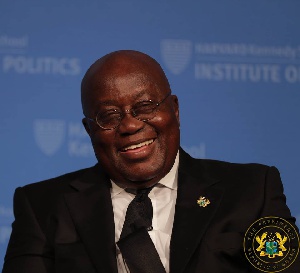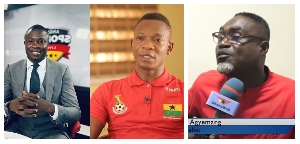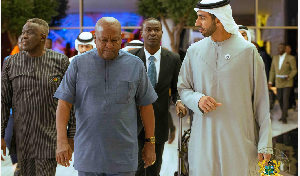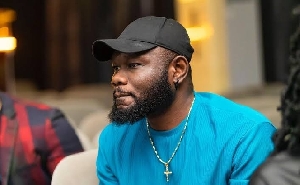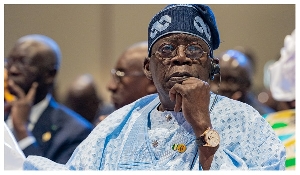“Special Rapporteur, Independent Expert, and Working Group Member are titles given to individuals working for, and on behalf of the United Nations, within the ambit of special procedure mechanisms, who have a specific country or thematic mandate from the UN Human Rights Council.”
The system of Special Procedures is a crucial element of the United Nations human rights regime, which takes care of all human rights: civil, cultural, economic, political, social and the right to development. As of 1 August 2017, there were 44 thematic and 12 country mandates.
Suffice it to stress that with the able support of the Office of the United Nations High Commissioner for Human Rights (OHCHR), special procedures undertake important country visits, act on individual cases and concerns of a wider, structural nature by conveying communications to States and others with regard to alleged violations or abuses to their attention.
In addition, Special Procedures undertake thematic studies and arrange expert consultations, add to the development of international human rights standards, engage in advocacy, raise public awareness, and provide advice for technical cooperation (UN 2017).
So, it was in that regard that the Special Rapporteur on extreme poverty and human rights, Philip Alston, embarked on a mission to Ghana from 9 to 18 April 2018 in accordance with the Human Rights Council resolution 35/19.
The rationale behind the visit was to evaluate and to convey to the Human Rights Council on the extent to which Akufo-Addo’s government policies and programmes geared towards mitigating extreme poverty are in conformity with its human rights obligations, and, to propound constructive recommendations to the Government and other stakeholders accordingly.
The Special Rapporteur on extreme poverty and human rights, Philip Alston, observes: “Ghana remains a champion of democracy in Africa, with power having regularly changed hands democratically since 1992.
“Ghana has no internal armed conflicts and has avoided the grave security threats faced by its regional neighbours. In development terms, its record of achieving certain Millennium Development Goals by 2015 is impressive.
“Ghana met the targets for halving extreme poverty and halving the proportion of people without access to safe drinking water, and it achieved the goals relating to universal primary education and gender parity in primary school.
“In the period ahead, Ghana is set to become Africa’s fastest-growing economy in 2018. Bloomberg News has proclaimed Ghana as the “Star of Africa in 2018 Lenders’ Economic Forecasts”.
“And in reporting on the same fiscal policy achievements, Le Monde has pointed out that Ghana’s success is not just as the result of an oil-driven boom, but is also due to prudent economic management, an entrepreneurial population, the role of traditional leaders, and good governance.
“In addition, Ghana’s achievements in providing free schooling and free meals to students, and its creation of a health insurance scheme for the whole country are considerable accomplishments” (Philip Alston, 2018).
Apparently, the UN Special Rapporteur on extreme poverty and human rights, Philip Alston, was adding to the Director of the International Monetary Fund (IMF), Ms Christine Lagarde’s observation that the Ghanaian economy is in a better place than it was in the previous years under the John Dramani Mahama’s administration.
Ms Lagarde declared that the Akufo-Addo’s government had made important gains towards macroeconomic stability, including inflation, which had declined to a single digit and now within the Bank of Ghana’s (BoG’s) tolerance band; buoyant growth, averaging about five per cent between 2015 and 2018, and, over six per cent in 2017-18) and a primary surplus in 2017 for the first time in 15 years (IMF 2018).
Based on such fine accomplishments, some of us cannot, therefore, stand accused of exhibiting risible and inborn proclivity for maintaining that President Akufo-Addo indeed possesses the attributes of a visionary leader.
Visionary leaders are noted for their positivism, idealized influence, inspirational motivation, intellectual stimulation and individual consideration (Nemanich and Keller, 2007).
Some experts however maintain that idealised influence depicts visionary leaders as most respectful, reliable and meritorious, while idealised influence explains leaders unparalleled ability in setting vision and implementing it to impact on their subordinates (Bass et al., 2003).
On the other hand, inspirational motivation explains how visionary leaders consistently raise team spirit and encourage their subordinates to be creative (Bass et al., 2003).
In addition, leadership and management scholars observe that visionary leaders act as role models, motivate, provide meaning, optimism, enthusiasm , strategic thinking and stimulate the intelligence of their subordinates(Bass, 1985).
If you may recall, during the 2016 electioneering campaign, the then presidential candidate of NPP, Nana Akufo-Addo, insisted: “I am promising you that within 18 months of a new government of the NPP, under my leadership, the face of our country, Ghana, is going to change”.
True to his promise though, within a short space of time, the Akufo-Addo’s government managed to improve upon the previously asphyxiated economy. Ghana's economic growth, which had slowed from 4.0% in 2014 to 3.7% in 2015 moved to 8.5% by 2018 following consolidation of macroeconomic stability and implementation of measures to resolve the crippling power crisis-‘dumsor’ (ADB).
Suffice it to emphasise that despite the extent of the economic mess left by the previous NDC government, the Akufo-Addo’s government took pragmatic steps and stabilised the economy within a short space of time.
Within that short period, the Akufo-Addo’s government efficiently raised the economic growth. Ghana’s economy grew provisionally by 8.5 percent in 2017 compared to 3.7 percent in 2016 (Ghana Statistical Service, 2018).
Interestingly, however, in the same year (2017), the Industry sector recorded the highest growth rate of 16.7 percent, followed by Agriculture 8.4 percent and the Services 4.3 percent.
Services share of GDP decreased from 56.8 percent in 2016 to 56.2 percent in 2017. The sector's growth rate also decreased from 5.7 percent in 2016 to 4.3 percent in 2017.
However, two of the subsectors in the services sector recorded double-digit growth rates, including Information and Communication-13.2 percent and Health and Social Work 14.4 percent.
The Industry sector, the highest growing sector with a GDP share of 25.5 percent, had its growth rate increasing from -0.5 percent in 2016 to 16.7 percent in 2017.
The Mining and Quarrying subsector recorded the highest growth of 46.7 percent in 2017.
The Agriculture sector expanded from a growth rate of 3.0 percent in 2016 to 8.4 percent in 2017. Its share of GDP, however, declined from 18.7 percent in 2016 to 18.3 percent in 2017. Crops remain the largest activity with a share of 14.2 percent of GDP.
The Non-Oil annual GDP growth rate decreased from 5.0 percent in 2016 to 4.9 percent in 2017. The 2017 Non-oil GDP for industry recorded a growth rate of 0.4 percent, compared with 4.9 percent in 2016. Growth in the fourth quarter of 2017 reached 8.1 percent compared to 9.7 percent in the third quarter (GNA, 2018).
This is indeed a leadership by example. In fact, Nana Akufo-Addo is ‘the Moses’ of our time.
Biblically, Moses was a visionary leader. We read in Exodus that he was a shepherd – he had a modest, a humble and patient upbringing.
Moses employed his humility, patience and tolerance when he had the opportunity to speak to God. He kept watch as thousands of sheep grazed the fields. Moses noticed that one sheep was missing and went off to look for it, finding it at a distance apart.
When the sheep had finished drinking, Moses lifted it onto his shoulders and carried it back to the flock. When Jehovah God saw this, he became aware that Moses was a man of reason, empathy and selfless devotion, a man truly worthy to lead His people; a man who would put his empathetic qualities at the disposal of the needs of his subordinates. After all, no one was keeping an eye on Moses; Moses could easily have thought to himself, “why be concerned with one sheep when there are thousands”?
Yes, we, (Ghanaians) took the right decision on 7th December 2016 by electing ‘the Moses’ of our time (Nana Akufo-Addo) to rescue us from the economic bondage of the ‘Pharaoh’ of our time (former President John Dramani Mahama).
K. Badu, UK.
k.badu2011@gmail.com
Opinions of Wednesday, 10 April 2019
Columnist: K. Badu

